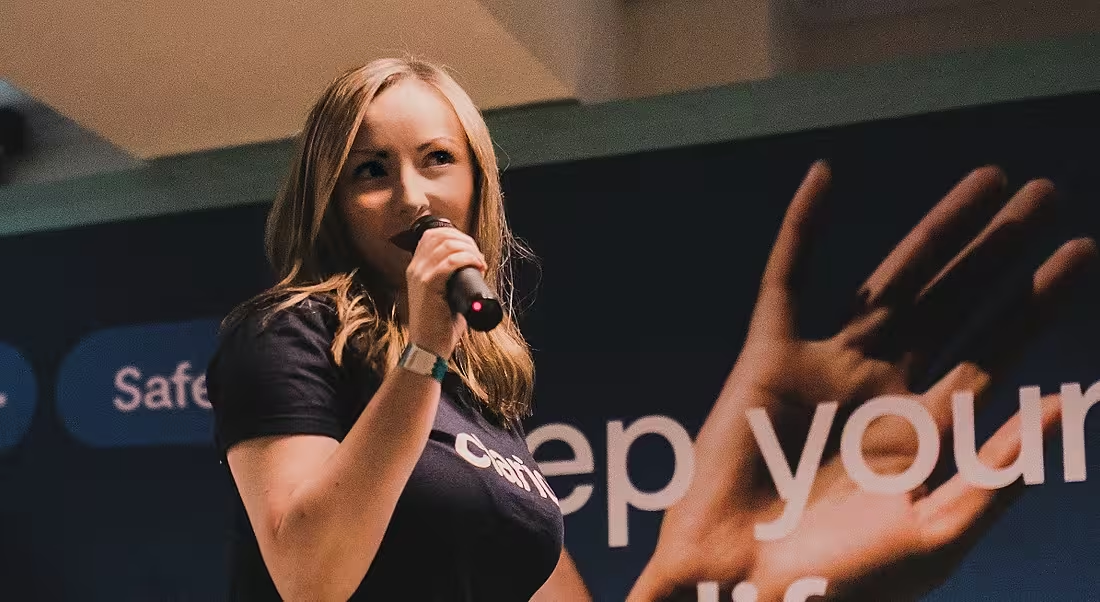Clario’s Scarlet Jeffers discusses her career journey in customer experience and why it shouldn’t be seen as ‘fluffy’ area of tech.
The user experience industry grown in importance over the years. While it may be a relatively new profession, a report late last year showed a 320pc increase in UX design jobs in Ireland over the previous five years.
Scarlet Jeffers is vice-president of experience at software company Clario, which develops tech for cybersecurity and privacy. According to her, user experience (UX) or customer experience (CX) were once considered a “kind of magic or frivolous thing” used by big tech companies as a way to stand out.
“Then with Amazon, we saw how being experience-led is actually a way to cut space in your market and outgrow all of your competitors,” she said. “I’d have to say the fact we even refer to the UX/CX world now as an industry is in itself a huge change.”
UX and CX generally involve producing designs for software products such as websites and apps to ensure that consumers can interact with them in a smooth and effective way.
Having formerly worked at Apple, Jeffers now heads up product development for Clario in London, which she says has been a fantastic opportunity because it was started completely from scratch. “We’re aiming to disrupt cybersecurity by simplifying the old-fashioned and overwhelmingly complex industry for consumers,” she said.
“It’s been challenging, thrilling, and sometimes a little terrifying all at once, but the most fun I’ve had in my career yet.”
‘The fact we even refer to the UX/CX world now as an industry is in itself a huge change’
– SCARLET JEFFERS
But how does someone end up in the area of UX? Jeffers started out by studying physics, specialising in fusion research. “In physics, you develop incredibly strong skills in analytical and abstract thinking, coding, problem solving and learning to communicate very complex things in the simplest way. All of these helped me a lot in my career in tech,” she said.
“But I realised that the really fascinating thing to me wasn’t just the technology behind things, but how people use and interact with technology to make their everyday lives easier or more meaningful.
“When I was working at Apple, I got the best immersion possible into that world, into the magic and art of human-centred technology design. Being able to video call your grandchild holding a big screen in your hand when you’ve never met them because you live in different countries, being able to send a customised birthday card to someone that you miss; that’s the magic of technology. That was when it became really obvious where I needed to be.”
The road to experience
Jeffers graduated from Aberdeen University in physics before becoming a management consultant. “My path went into product management, through core UX and product design. It was amazing as I got two careers’ breadth of experience in just six years.”
However, Jeffers said that because consulting usually means leading the way at the start of the project, you don’t get to build as many long-term relationships. “I wanted to see a product the whole way through, from strategy to implementation to growth,” she said, which led her to her current role in Clario.
Jeffers added that while there have been huge strides in the concept of UX and CX becoming part of wider strategic business plans, she’s still seeing some misconceptions about the roles they play.
“UX and CX are still highly technical topics. They’re equal parts science and art. All too often experience is still seen as ‘fluffy’.
“Secondly, I don’t think there is enough discussion on how UX or CX directly impacts financial performance. We all need to get better at the data and proof points if we’re going to inspire true and long-lasting change in the consumer tech world.”
In terms of her own career, Jeffers said she faces challenges on a weekly basis and that carving out a new path always comes with growing pains. “I think the most challenging thing for me was being faced with my own mistakes or wrong turns, times when I haven’t been true to my own values or expectations of myself and learning to forgive myself for that,” she said.
“Forgiving yourself and embracing those mistakes as a way to grow and develop, never making them again, is fundamental to making real progress.”
Want stories like this and more direct to your inbox? Sign up for Tech Trends, Silicon Republic’s weekly digest of need-to-know tech news.




